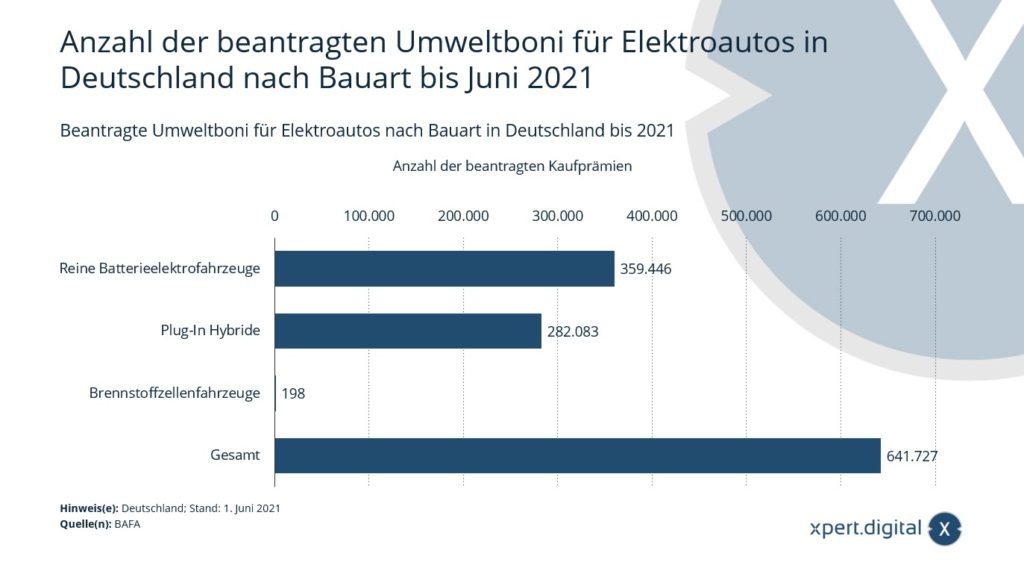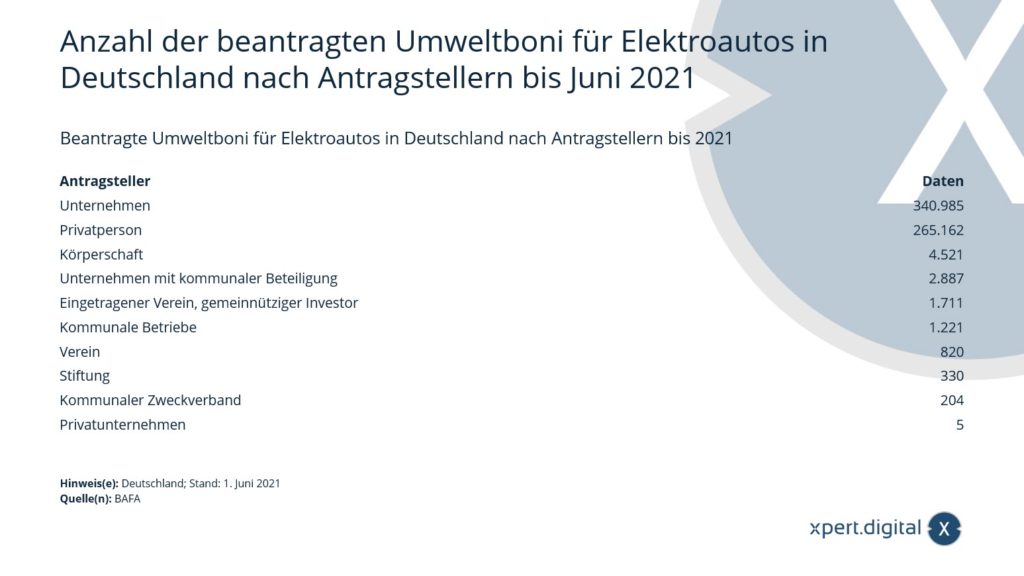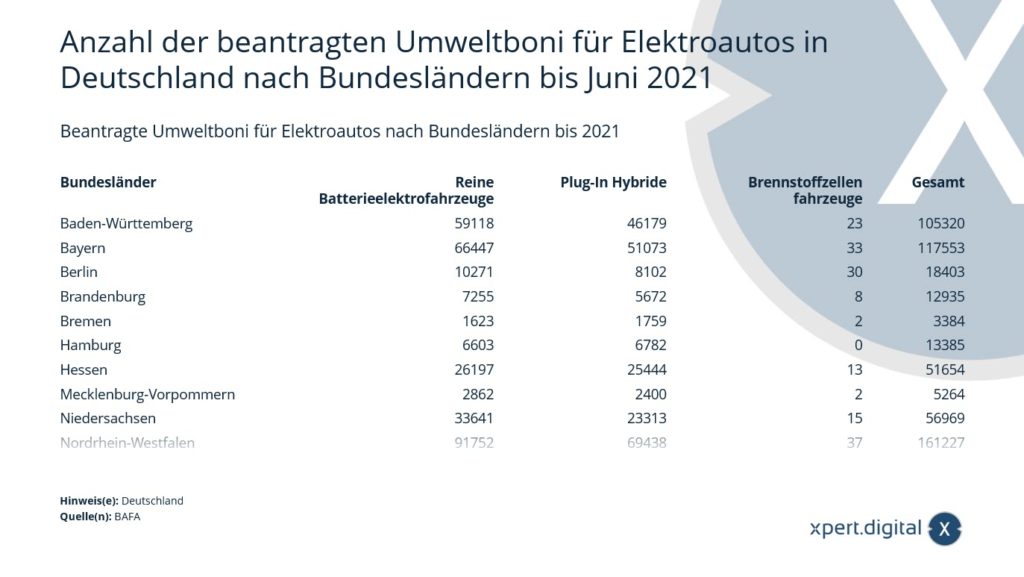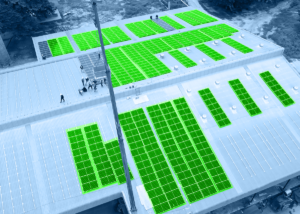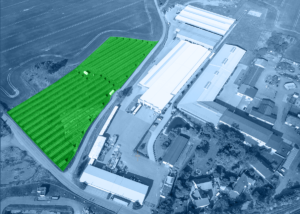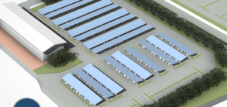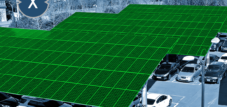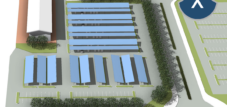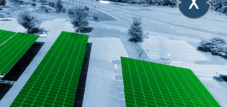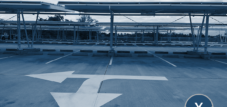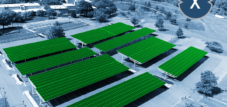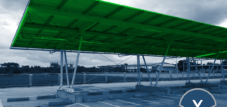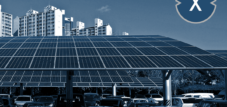Photovoltaics (PV): Build a solar carport and solar system on a flat roof - looking for a system from Hamburg, Bremen or Berlin?
Language selection 📢
Published on: July 12, 2021 / update from: August 4, 2021 - Author: Konrad Wolfenstein
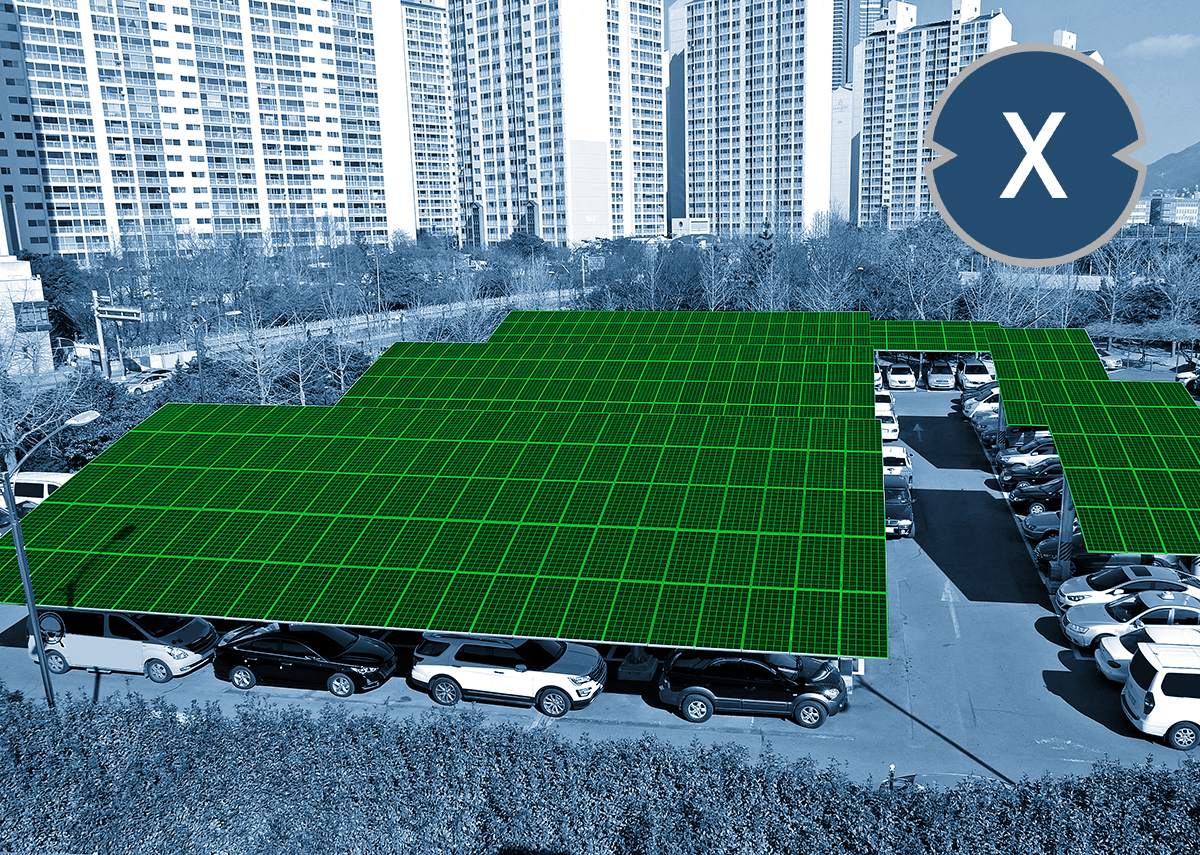
Photovoltaic solar carport and solar for flat roofs and pitched roofs – Xpert.Digital / seo byeong gon|Shutterstock.com
Promote the expansion of charging points and charging options from renewable energies with solar carports!
In total, environmental bonuses have been applied for around 359,400 pure battery electric vehicles and around 282,000 plug-in hybrid vehicles. More than half of them come from companies and have been approved for them.
📣 Parking areas solar solutions for industry, retail and municipalities
Everything from a single source, specially designed for solar solutions for large parking areas. You refinance or counterfinance into the future with your own electricity generation.
🎯 For solar engineers, plumbers, electricians and roofers
Advice and planning including a non-binding cost estimate. We bring you together with strong photovoltaic partners.
👨🏻 👩🏻 👴🏻 👵🏻 For private households
We are positioned across regions in German-speaking countries. We have reliable partners who advise you and implement your wishes.
For many, however, the electricity still comes from the socket, which means that the majority of the electricity required for this currently comes from fossil fuels (= greenhouse gas carbon dioxide CO2) and nuclear power. However, some companies have already made the first efforts towards autonomous power supply.
Suitable for:
The most popular variant is the expansion of the existing flat roof on warehouses, company buildings or roofs of production facilities. This particularly applies to shed roofs, parallel roofs, trench roofs and others. There is a solution for almost every roof. In the industrial sector, foil roofs and bitumen roofs are also common, which require non-invasive fastening of a solar system. This means that a substructure that does not penetrate the roof is preferred. There is an option for this too. The best known is the METIS system from T.Werk.
Suitable for:
With the advent of solar carports solar requirement for open parking spaces, another alternative for generating electricity and for autonomous power supply is developing
Open parking spaces are usually:
- A storage area open on the side walls, not a barn or shed or similar.
- Carports, covered parking spaces
- Uncovered parking spaces
- Parking available on a property
- Outdoor parking spaces
Suitable for:
- Are solar farms the most popular electricity generation systems?
- Solar carports: company parking spaces – sensible use of sealed areas
In Baden-Württemberg this affects all open parking spaces with a number of 75 or more parking spaces. Section 8b of the Climate Protection Act in Baden-Württemberg defines that “ a photovoltaic system must be installed above the parking space suitable for solar use There is no alternative as with the requirement for photovoltaic systems for new non-residential buildings.
Our solar parking solution is modular and scalable:
- Quick and easy assembly
- Stable strip foundation as collision protection
- Individually customizable design (color, materials, surface, size, etc.)
- Installation of charging stations and inverters is possible at any time
- Scalable & modular: Available as a single, double or arbitrarily scalable row carport
- Can even be used in the standard version for very high wind and snow loads (s k = 2.2 kN/m²)
- Extra large and wide parking spaces and very easy parking thanks to W-shaped supports
- High-quality design for sophisticated and long-lasting requirements: Hot-dip galvanized steel construction (DIN EN 10346, DIN EN 1461)
- [Click here for more]
Suitable for:
Industrial flat roof solar systems and solar parks or outdoor photovoltaic systems are another alternative
If you are thinking of investing in a solar carport for your company location and/or open parking spaces, a solar system on the company roof is also recommended. Exploiting any energy potential for an emission-free and autonomous power supply is also a competitive advantage and securing market shares.
Charging infrastructure and charging stations
Should the energy generated be fed into the grid or parked in energy or electricity storage? What are the load profiles, the technical connection conditions, number of charging stations, vehicle downtime and ultimately the specified total PV output? Will the charges be recorded with the company if the employee charges their company car from home? These are questions that we will have to deal with in the future. It is different from what we are used to today.
Suitable for:
Environmental bonuses applied for for electric cars by design in Germany
This statistic shows the number of purchase bonuses applied for for electric vehicles, which are also known as environmental bonuses, by type of electric vehicle drive in Germany (as of June 1, 2021). The purchase (purchase or leasing) of an electric vehicle that is registered for the first time and does not exceed a net list price of the basic model of 65,000 euros is eligible for funding. By the date stated, a total of around 359,400 environmental bonuses had been applied for purely battery-powered electric vehicles in Germany.
Number of environmental bonuses applied for for electric cars in Germany by design until June 2021
- Pure battery electric vehicles – 359,446
- Plug-In Hybrids – 282,083
- Fuel cell vehicles – 198
- Total – 641,727
Number of environmental bonuses applied for for electric cars in Germany by model
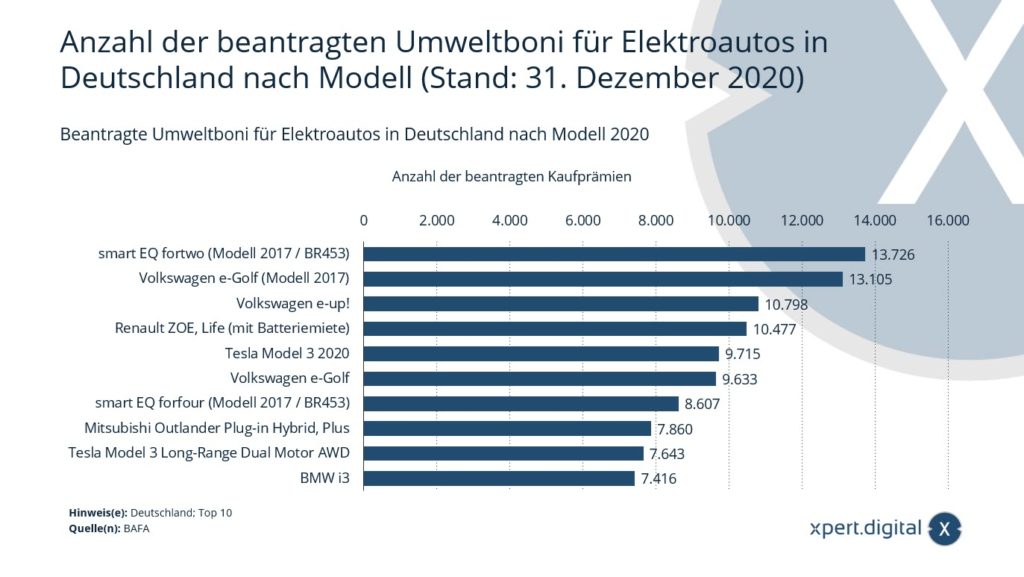
Number of environmental bonuses applied for for electric cars in Germany by model – Image: Xpert.Digital
This statistic shows the ten electric car models with the most purchase bonuses applied for by December 31, 2020 in Germany. The purchase bonus for electric cars is also known as an environmental bonus. The purchase (purchase or leasing) of an electric vehicle that is registered for the first time and does not exceed a net list price of the basic model of 60,000 euros is eligible for funding. The premium is borne equally by the federal government and half by the automobile manufacturer. By the date stated, a total of around 7,416 environmental bonuses had been applied for in Germany for the BMW i3 model, which placed it in tenth place in the ranking.
Suitable for:
- Best practice solar carport: What trade and industry in Baden-Württemberg need to know now
- Charging stations and solar carports together make sense: the circle closes
Applied environmental bonuses for electric cars in Germany according to the 2020 model – as of December 31, 2020
- smart EQ fortwo (model 2017 / BR453) – 13,726
- Volkswagen e-Golf (2017 model) – 13,105
- Volkswagen e-up! – 10,798
- Renault ZOE, Life (with battery rental) – 10,477
- Tesla Model 3 2020 – 9,715
- Volkswagen e-Golf – 9,633
- smart EQ forfour (model 2017 / BR453) – 8,607
- Mitsubishi Outlander Plug-in Hybrid, Plus – 7,860
- Tesla Model 3 Long-Range Dual Motor AWD – 7,643
- BMW i3 – 7,416
Applied environmental bonuses for electric cars in Germany by applicant
This statistic shows the number of purchase bonuses applied for for electric vehicles in Germany by June 2021, broken down by applicant. The purchase bonus for electric cars is also known as an environmental bonus. The purchase (purchase or leasing) of an electric vehicle that is registered for the first time and does not exceed a net list price of the basic model of 65,000 euros is eligible for funding. By the date stated, a total of 820 applications for the environmental bonus had been submitted by clubs in Germany.
Number of environmental bonuses applied for for electric cars in Germany by applicant until June 2021
- Company – 340,985 electric cars
- Private individual – 265,162 electric cars
- Corporation – 4,521 electric cars
- Companies with municipal participation – 2,887 electric cars
- Registered association, non-profit investor – 1,711 electric cars
- Municipal companies – 1,221 electric cars
- Club – 820 electric cars
- Foundation – 330 electric cars
- Municipal special purpose association – 204 electric cars
- Private company – 5 electric cars
- Freelancer – 2 electric cars
- Sole proprietor – 2 electric cars
- Registered cooperatives – 1 electric car
- Church, ecclesiastical institution, recognized religious community. – 1 electric car
Suitable for:
Environmental bonuses applied for for electric cars by federal state until 2021
This statistic shows the number of purchase bonuses applied for for electric vehicles up to June 2021 in Germany by federal state. The purchase bonus for electric cars is also known as an environmental bonus. The purchase (purchase or leasing) of an electric vehicle that is registered for the first time and does not exceed a net list price of the basic model of 65,000 euros is eligible for funding. By the date stated, around 59,100 environmental bonuses for pure battery electric vehicles and 46,200 environmental bonuses for plug-in hybrids had been applied for in Baden-Württemberg.
Suitable for:
- Why solar carports are now important
- The growth industry of electric cars challenges the infrastructure
Number of environmental bonuses applied for for electric cars in Germany by federal state until June 2021
Pure battery electric vehicles
- Baden-Württemberg – 59,118 battery electric vehicles
- Bavaria – 66,447 battery electric vehicles
- Berlin – 10,271 battery electric vehicles
- Brandenburg – 7,255 battery electric vehicles
- Bremen – 1,623 battery electric vehicles
- Hamburg – 6,603 battery electric vehicles
- Hesse – 26,197 battery electric vehicles
- Mecklenburg-Western Pomerania – 2,862 battery electric vehicles
- Lower Saxony – 33,641 battery electric vehicles
- North Rhine-Westphalia – 91,752 battery electric vehicles
- Rhineland-Palatinate – 16,453 battery electric vehicles
- Saarland – 3,690 battery electric vehicles
- Saxony – 9,105 battery electric vehicles
- Saxony-Anhalt – 4,278 battery electric vehicles
- Schleswig-Holstein – 13,955 battery electric vehicles
- Thuringia – 6,146 battery electric vehicles
- Other (abroad) – 50 battery electric vehicles
Plug-in hybrid vehicles
- Baden-Württemberg – 46,179 plug-in hybrid vehicles
- Bavaria – 51,073 plug-in hybrid vehicles
- Berlin – 81.02 plug-in hybrid vehicles
- Brandenburg – 5,672 plug-in hybrid vehicles
- Bremen – 1,759 plug-in hybrid vehicles
- Hamburg – 6,782 plug-in hybrid vehicles
- Hesse – 25,444 plug-in hybrid vehicles
- Mecklenburg-Western Pomerania – 2,400 plug-in hybrid vehicles
- Lower Saxony – 23,313 plug-in hybrid vehicles
- North Rhine-Westphalia – 69,438 plug-in hybrid vehicles
- Rhineland-Palatinate – 13,390 plug-in hybrid vehicles
- Saarland – 3,076 plug-in hybrid vehicles
- Saxony – 8,358 plug-in hybrid vehicles
- Saxony-Anhalt – 3,797 plug-in hybrid vehicles
- Schleswig-Holstein – 8,485 plug-in hybrid vehicles
- Thuringia – 4,763 plug-in hybrid vehicles
- Other (abroad) – 52 plug-in hybrid vehicles
Fuel cell vehicles
- Baden-Württemberg – 23 fuel cell vehicles
- Bavaria – 33 fuel cell vehicles
- Berlin – 30 fuel cell vehicles
- Brandenburg – 8 fuel cell vehicles
- Bremen – 2 fuel cell vehicles
- Hamburg – 0 fuel cell vehicles
- Hesse – 13 fuel cell vehicles
- Mecklenburg-Western Pomerania – 2 fuel cell vehicles
- Lower Saxony – 15 fuel cell vehicles
- North Rhine-Westphalia – 37 fuel cell vehicles
- Rhineland-Palatinate – 7 fuel cell vehicles
- Saarland – 0 fuel cell vehicles
- Saxony – 8 fuel cell vehicles
- Saxony-Anhalt – 11 fuel cell vehicles
- Schleswig-Holstein – 6 fuel cell vehicles
- Thuringia – 3 fuel cell vehicles
- Other (abroad) – 0 fuel cell vehicles
Total: Pure battery electric vehicles, plug-in hybrids and fuel cell vehicles
- Baden-Württemberg – 105,320 battery electric vehicles, plug-in hybrids and fuel cell vehicles
- Bavaria – 117,553 battery electric vehicles, plug-in hybrids and fuel cell vehicles
- Berlin – 18,403 battery electric vehicles, plug-in hybrids and fuel cell vehicles
- Brandenburg – 12,935 battery electric vehicles, plug-in hybrids and fuel cell vehicles
- Bremen – 3,384 battery electric vehicles, plug-in hybrids and fuel cell vehicles
- Hamburg – 13,385 battery electric vehicles, plug-in hybrids and fuel cell vehicles
- Hesse – 51,654 battery electric vehicles, plug-in hybrids and fuel cell vehicles
- Mecklenburg-Western Pomerania – 5,264 battery electric vehicles, plug-in hybrids and fuel cell vehicles
- Lower Saxony – 56,969 battery electric vehicles, plug-in hybrids and fuel cell vehicles
- North Rhine-Westphalia – 161,227 battery electric vehicles, plug-in hybrids and fuel cell vehicles
- Rhineland-Palatinate – 29,850 battery electric vehicles, plug-in hybrids and fuel cell vehicles
- Saarland – 6,766 battery electric vehicles, plug-in hybrids and fuel cell vehicles
- Saxony – 17,471 battery electric vehicles, plug-in hybrids and fuel cell vehicles
- Saxony-Anhalt – 8,086 battery electric vehicles, plug-in hybrids and fuel cell vehicles
- Schleswig-Holstein – 22,446 battery electric vehicles, plug-in hybrids and fuel cell vehicles
- Thuringia – 10,912 battery electric vehicles, plug-in hybrids and fuel cell vehicles
- Other (abroad) – 102 battery electric vehicles, plug-in hybrids and fuel cell vehicles
- Warehouses, production halls and industrial halls with their own power source from a photovoltaic roof system - Image: NavinTar|Shutterstock.com
- Industrial plant with its own power source from an outdoor photovoltaic system - Image: Peteri|Shutterstock.com
- Plan solar systems with photovoltaic solutions for freight forwarding and contract logistics
- B2B solar systems and photovoltaic solutions & advice
- Plan photovoltaics for warehouses, commercial halls and industrial halls
- Industrial plant: Plan a photovoltaic open-air system or open-space system
- Plan solar systems with photovoltaic solutions for freight forwarding and contract logistics
- B2B solar systems and photovoltaic solutions & advice
That's why the Xpert.Solar advice on solar carports , solar systems and solar systems on flat roofs for Hamburg, Bremen and Berlin!
I would be happy to serve as your personal advisor.
You can contact me by filling out the contact form below or simply call me on +49 89 89 674 804 .
I'm looking forward to our joint project.
Xpert.Digital – Konrad Wolfenstein
Xpert.Digital is a hub for industry with a focus on digitalization, mechanical engineering, logistics/intralogistics and photovoltaics.
With our 360° business development solution, we support well-known companies from new business to after sales.
Market intelligence, smarketing, marketing automation, content development, PR, mail campaigns, personalized social media and lead nurturing are part of our digital tools.
You can find out more at: www.xpert.digital – www.xpert.solar – www.xpert.plus



